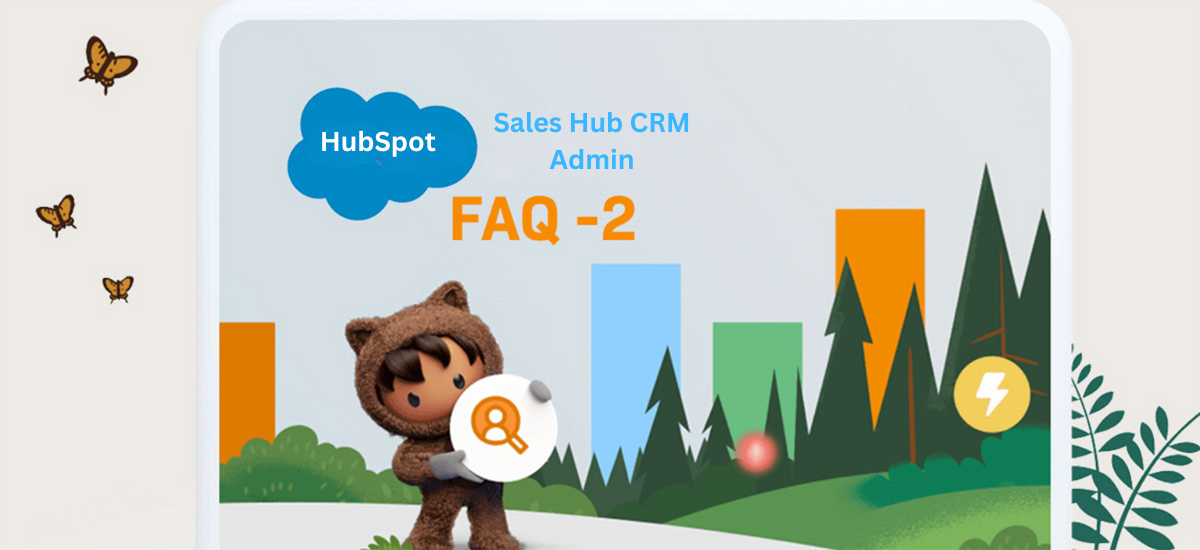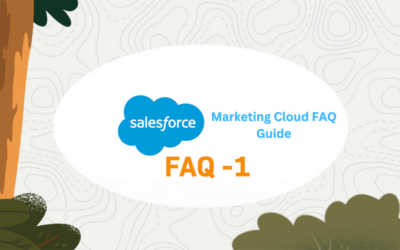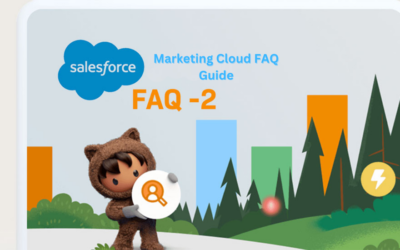In the ever-evolving landscape of modern business, effective customer relationship management has become a linchpin for sustainable growth and success. As organizations continue to navigate the dynamic world of sales and marketing, the role of a HubSpot Sales Hub CRM Admin has emerged as a pivotal one. This professional is tasked with harnessing the power of HubSpot’s Sales Hub CRM to optimize lead management, streamline sales processes, and nurture customer relationships. To ensure the seamless operation of this integral system, it is imperative to evaluate the expertise of a HubSpot Sales Hub CRM Admin through a comprehensive understanding of their technical proficiency, data management capabilities, and their aptitude for leveraging advanced features and integrations.
In this in-depth examination, we will delve into a comprehensive collection of technical questions and detailed answers tailored to evaluate a HubSpot Sales Hub CRM Admin. By exploring their knowledge of lead scoring, data synchronization, lead rotation, and the intricate world of custom properties and segmentation, we aim to uncover their proficiency in maximizing CRM functionality. Furthermore, we’ll navigate the nuances of data management and reporting, from custom objects and data backup to the crucial role of data consistency and integrity. Finally, we’ll traverse the world of integrations and advanced features, exploring the intricacies of HubSpot Sequences, lead capture forms, and user roles, among others. Through this thorough assessment, we intend to equip organizations with the tools needed to identify the right HubSpot Sales Hub CRM Admin, ensuring the continued growth and success of their CRM ecosystem. If you need assistance with Salesforce CRM setup and optimization, companies like CRM Force can provide valuable expertise and support.
1- What is the HubSpot Sales Hub’s approach to integration with popular email platforms like Gmail and Outlook, and how does it enhance email tracking and productivity for sales teams?
Answer: HubSpot Sales Hub integrates with popular email platforms like Gmail and Outlook through browser extensions. It enhances email tracking by providing real-time notifications when emails are opened and facilitating email engagement tracking directly from the email client, thereby improving sales team productivity.
2- What are the options available in HubSpot Sales Hub CRM for managing data backups, and how does it help organizations ensure data resilience and continuity?
Answer: HubSpot offers data backup options, including export capabilities and third-party data backup integrations. These options allow organizations to create regular backups of CRM data, ensuring data resilience and continuity in case of data loss or system issues.
3- What is the role of the HubSpot App Marketplace in extending HubSpot Sales Hub CRM functionality, and how can organizations leverage it to integrate additional tools and features?
Answer: The HubSpot App Marketplace is a repository of third-party integrations and applications that extend the functionality of HubSpot CRM. Organizations can leverage it to integrate additional tools and features seamlessly, enhancing CRM capabilities and meeting specific business needs.
4- What is lead qualification, and how do you configure lead scoring criteria in HubSpot Sales Hub CRM?
Answer: Lead qualification is the process of determining if a lead is sales-ready. In HubSpot CRM, lead scoring criteria are configured by assigning point values to lead interactions and characteristics, allowing you to prioritize and qualify leads based on their scores.
5- What are the primary differences between HubSpot Sales Hub CRM and HubSpot Marketing Hub, and how do they work together?
Answer: HubSpot Sales Hub CRM focuses on sales and lead management, while HubSpot Marketing Hub is primarily for marketing automation. They work together through data synchronization, sharing customer data between the two platforms, allowing marketing and sales teams to align efforts and provide a unified customer experience.
6- How does the HubSpot CRM handle lead attribution and source tracking, and why is it essential for understanding lead sources?
Answer: HubSpot CRM tracks lead sources by attributing leads to various channels or touchpoints. It’s vital to understand where your leads come from and assessing the effectiveness of marketing efforts and campaigns.
7- What is the role of email templates in HubSpot Sales Hub CRM, and how can they be used to save time in email communication?
Answer: Email templates in HubSpot CRM are pre-written email formats that can be reused for consistent communication. They save time by providing a foundation for email content and ensuring uniform messaging.
8- What is the role of lead segmentation, and how can you create static lists in HubSpot Sales Hub CRM for targeted communication?
Answer: Lead segmentation in HubSpot CRM involves categorizing leads based on specific criteria, allowing for targeted communication. Static lists are created by manually selecting leads and defining criteria for segmentation.
9- What are HubSpot workflows, and how can they be used to automate sales processes and lead nurturing?
Answer: HubSpot’s workflows are automation sequences that can be used to automate routine tasks and lead nurturing. They allow for automated actions like sending follow-up emails, assigning leads to sales reps, and nurturing leads through predefined steps in the buyer’s journey.
10- How does HubSpot CRM handle the integration of third-party tools through its API, and what possibilities does it open for extending CRM functionality?
Answer: HubSpot CRM integrates third-party tools through its API, allowing organizations to extend CRM functionality by creating custom integrations, automating processes, and enhancing the user experience with additional tools and features.
11- What are custom objects in HubSpot Sales Hub CRM, and in what situations would you use them to capture specialized data?
Answer: Custom objects in HubSpot CRM allow for the capture of specialized data that doesn’t fit within the standard CRM structure. They are used in scenarios where unique data needs to be tracked, such as project details, contracts, or custom interactions.
12- How does HubSpot CRM handle data backup and retention policies, and what options are available for organizations to ensure data resilience and compliance?
Answer: HubSpot CRM offers data backup and retention settings that allow organizations to define how long data should be retained. Data backups can be created and maintained through manual exports or third-party data backup integrations.
13- What is the purpose of HubSpot Sequences, and how do they streamline sales email outreach and follow-up in the CRM?
Answer: HubSpot Sequences are used to automate sales email outreach and follow-up. They enable sales teams to create a series of personalized emails, set follow-up reminders, and track email engagement, saving time and improving the efficiency of email communication.
14- What is the HubSpot mobile app, and how does it enhance the productivity of sales teams by providing on-the-go access to CRM data?
Answer: The HubSpot mobile app offers real-time access to CRM data, allowing sales teams to access lead information, log activities, and track email engagement while on the go. It enhances productivity by enabling remote access and data updates.
15- How does HubSpot CRM integrate with popular email platforms like Gmail and Outlook, and how does it improve email tracking and productivity for sales teams?
Answer: HubSpot CRM integrates with email platforms like Gmail and Outlook through browser extensions. It enhances email tracking by providing real-time notifications when emails are opened and facilitating email engagement tracking directly from the email client, thus improving productivity.
16- What is the HubSpot Sales Hub Chrome extension, and how does it enhance productivity for sales teams by providing CRM functionality within email clients?
Answer: The HubSpot Sales Hub Chrome extension enhances productivity by offering email tracking, CRM integration, and contact enrichment features directly within Gmail and other email clients. It allows salespeople to access CRM functionality without leaving their email interface.
17- How does HubSpot CRM handle lead import from external sources, and what are the supported file formats for lead imports?
Answer: HubSpot CRM supports lead imports from various file formats such as CSV, XLSX, and VCF. The import process involves mapping data fields and performing data validation checks to ensure data accuracy during the import.
18- What is HubSpot’s approach to data retention policies, and how can it help organizations adhere to data privacy regulations?
Answer: HubSpot offers data retention settings to help organizations comply with data privacy regulations. These settings allow organizations to define how long data should be retained and automatically delete data that exceeds the specified retention period.
19- What is the purpose of lead capture forms in HubSpot Sales Hub CRM, and how do they facilitate lead generation and data collection?
Answer: Lead capture forms in HubSpot CRM allow organizations to collect information from website visitors. They facilitate lead generation by capturing visitor data in exchange for valuable content or offers, enabling businesses to capture and nurture leads.
20- How does HubSpot Sales Hub CRM handle lead data enrichment and data append processes, and what benefits can these practices bring to lead profiles and sales efforts??
Answer: HubSpot CRM supports lead data enrichment and data append processes, which involve filling in missing lead information with additional data. These practices benefit lead profiles by providing more comprehensive information about leads, enabling better lead targeting, and personalizing sales efforts effectively.
Conclusion
In conclusion, competitive business landscape, where customer relationships are paramount, the role of a HubSpot Sales Hub CRM Admin holds significant value. Their knowledge and capabilities are the driving forces behind businesses’ ability to connect, engage, and nurture leads, thereby fueling growth and enhancing customer loyalty. The expertise we’ve assessed, spanning technical know-how, data management skills, and the effective utilization of advanced CRM features, is crucial for ensuring that the CRM system operates seamlessly and delivers results.
In the final analysis, the right HubSpot Sales Hub CRM Admin is not merely a steward of technology but a catalyst for success. Their ability to harness the CRM’s full potential, automate processes, manage data effectively, and integrate external tools makes them instrumental in the journey toward sustainable growth. By carefully evaluating their proficiencies in the areas covered by the technical questions and answers, organizations can make informed decisions and secure a HubSpot Sales Hub CRM Admin who will drive their customer relationship management efforts to new heights and ensure a strong competitive edge in the market. To learn more about how CRM Force can assist you in recruiting top CRM talent and optimizing your CRM strategies for successful drip campaigns, contact us today. Together, let’s maximize your customer engagement Contact Us today.





